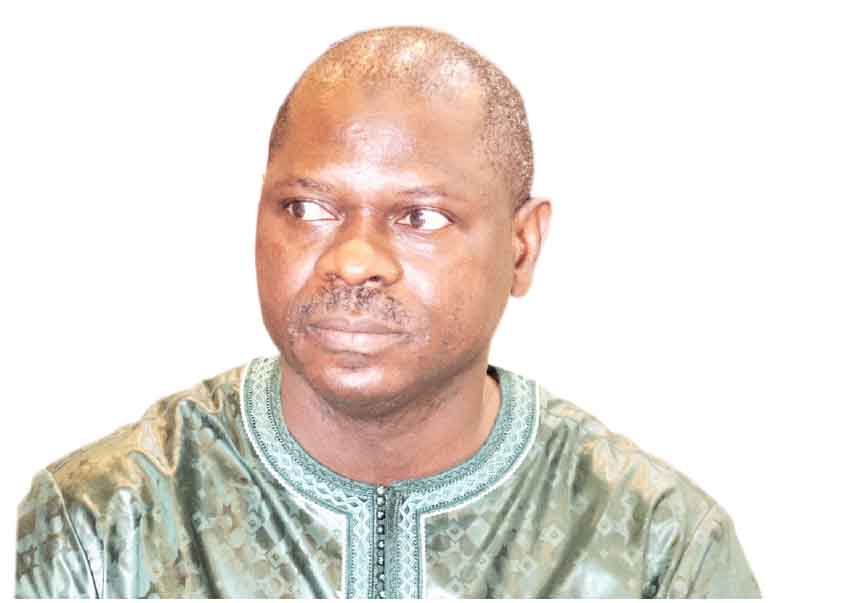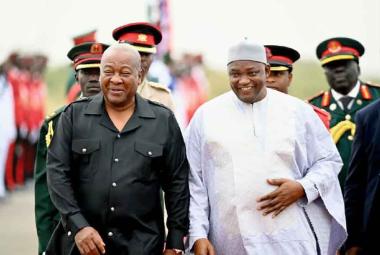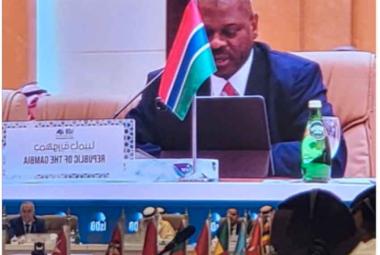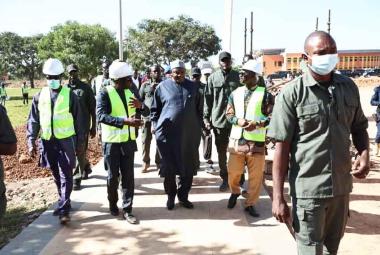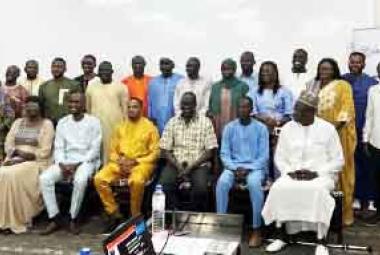The Minister of Finance and Economic Affairs (MoFEA) Hon. Seedy K.M. Keita, recently attended the Governors’ consultation retreat on the Islamic Development Bank (IsDB) Group’s 10-year strategic framework (2026-2035) in Al-Madinah, Kingdom of Saudi Arabia.
In his remarks, Minister Keita advised that the Bank’s strategic framework be anchored on the principles of Islamic finance and south-south cooperation. “The Bank should continue to be a listening Bank that it has been; where its surgical interventions are aligned with the development aspirations of member countries. This will be a unique selling proposition for the Bank. The Bank should stay away from conditionalities whilst aligning with the national development agenda of member countries”.
Hon. Keita also suggested that the Bank increase access to concessional funds for its LDC member countries, arguing that many of these countries are beset with debt challenges and are implementing IMF Programmes; hence their access to non-concessional funds is limited.
He went on: “The Bank should scale up significantly its non-sovereign operations by introducing private sector initiatives and attracting private capital to unlock the full potential of member countries. Initiatives such as public-private partnerships, partial credit guarantees, trade financing facilities, and partial risk guarantees are aimed at scaling up the financing of the private sector. The private sector remains the engine of growth of member countries”.
The Gambian Finance minister also urged the Bank to respond effectively to her mandate in delivering all its value propositions through investments in the human resource base of the institution.
“The increasing global challenges require institutional restructuring aimed at enhancing the human resources capabilities and organizational effectiveness of the Bank. This should be a priority and given adequate attention and resources,” he proposed.
To improve operational effectiveness, client satisfaction, and development results, Minister Keita recommended that there should be greater decentralisation at the regional level. “This should be phased out strategically and within the framework of financial sustainability of the Bank. Decentralization will help to bridge the gap between the Bank and member countries. Similarly, a minimum country representation is necessary as well”.
To continue leadership in Islamic finance, he advised that the Bank strengthen its research capability and leverage the 50-year experience for knowledge dissemination to member countries This, he believes, will help address the limited innovation and product diversification. “The Bank will only become a leader in Islamic finance if it can dynamically introduce new Islamic financial instruments given the evolving nature of financial markets and the demand for new financial solutions to tackle emerging development challenges,” he pointed out.
Minister Keita concluded by thanking the Bank for its commitment to supporting the development aspirations of member countries and Muslim communities in non-member countries. “We believe that the 10-year strategic framework which is being developed through extensive consultation, including this Governors Retreat will unleash the true potential of the Bank”.
Finance Minister Attends Governors’ Consultation Meeting on IsDB Group’s 10-year Strategic Framework
